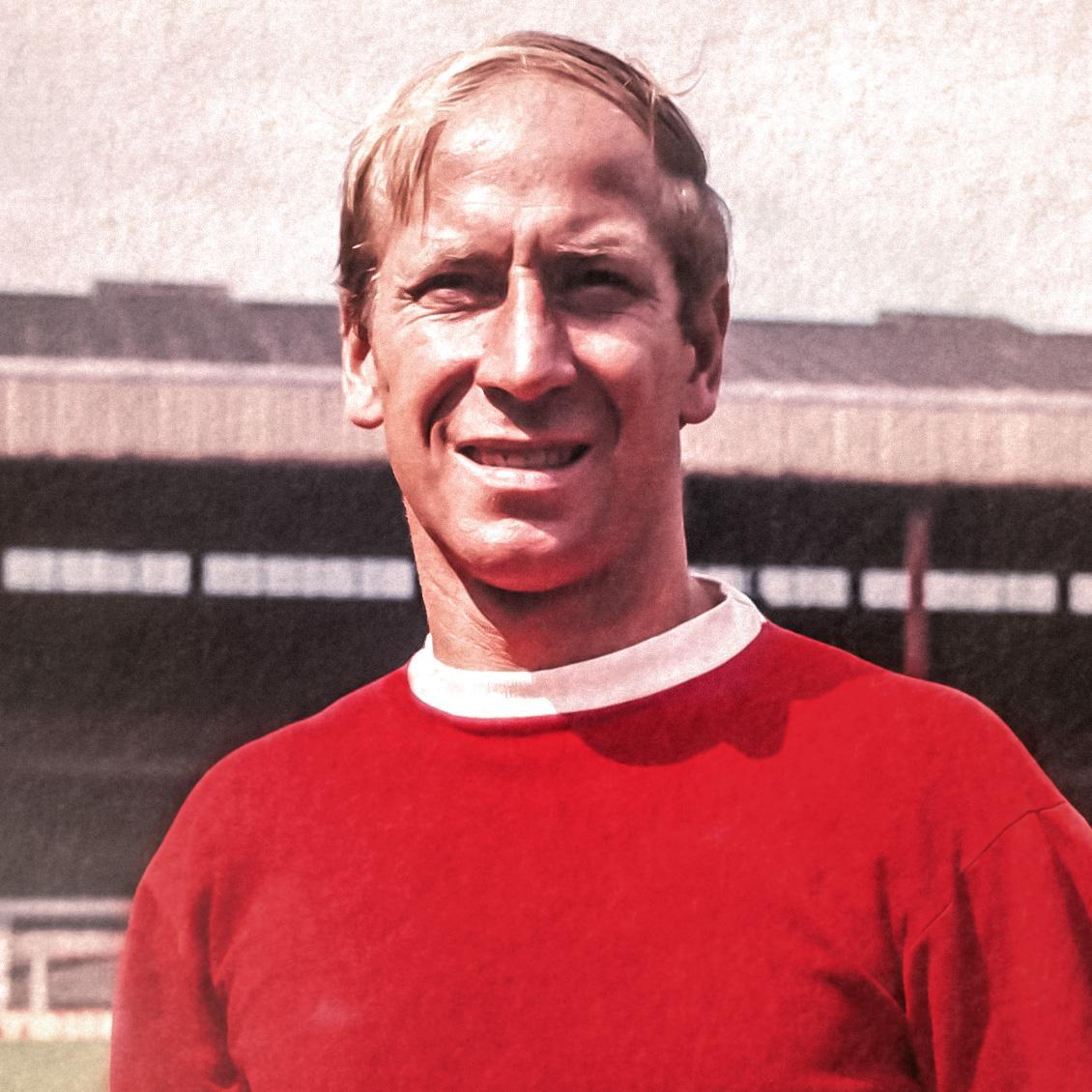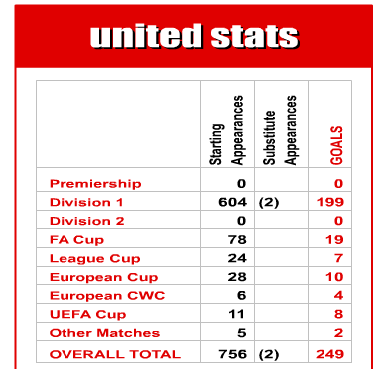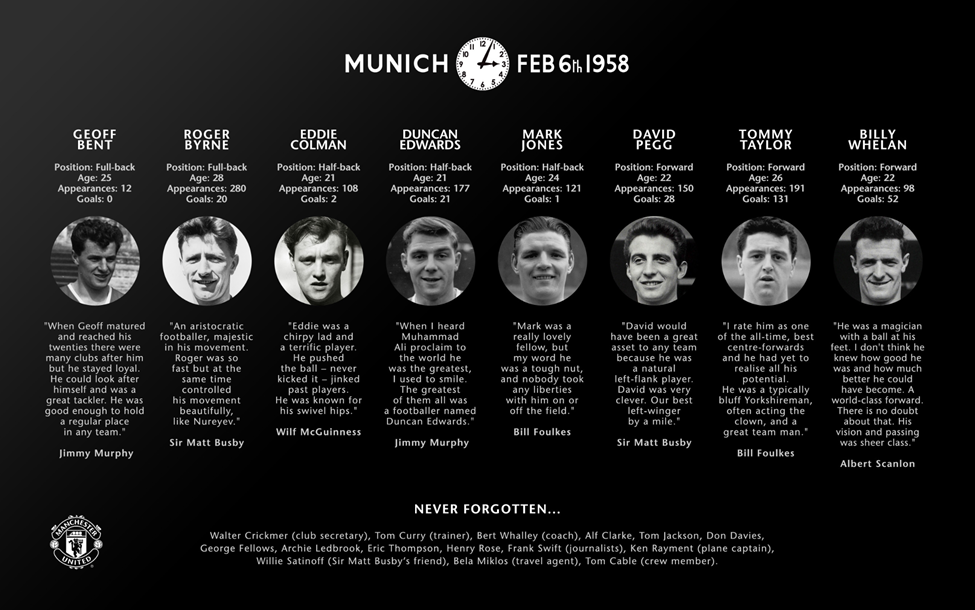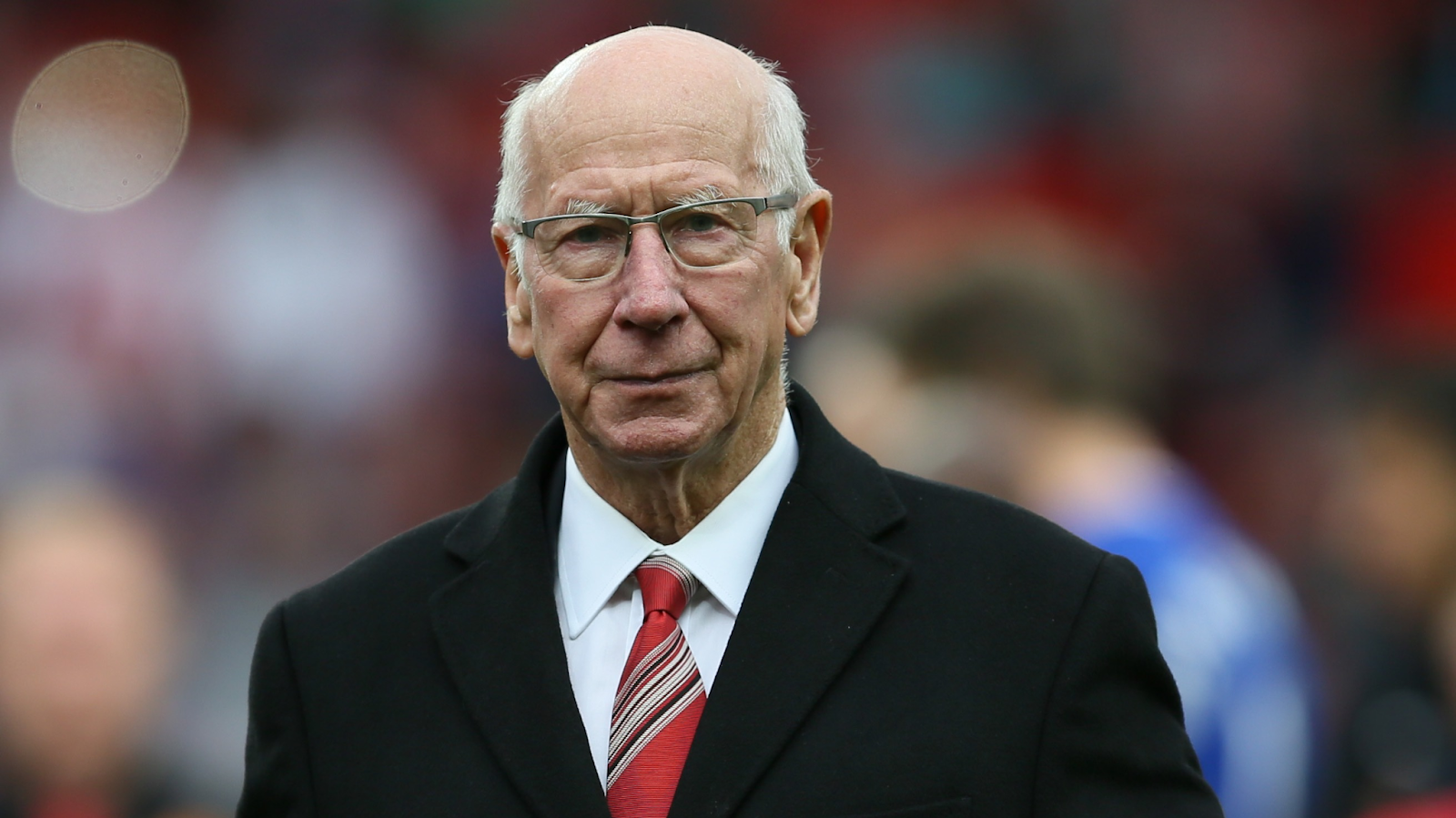Manchester United Lost: A Tribute To Football Player Bobby Charlton
The footballing universe dimmed on October 21, 2023, as it lost one of its brightest stars. Sir Bobby Charlton, an enduring legend in the beautiful game world, left an irreplaceable void with his departure.
Author:Andrew StevensonReviewer:Johnathan MillerNov 08, 202323.3K Shares409.7K Views

On October 21, 2023, the football world bid a sad farewell to a true legend, Sir Bobby Charlton. His passing marked the end of an era in the beautiful game. In this article, we commemorate the extraordinary life of a football icon, delving into his illustrious career and his indelible contributions to the sport. From his early days to his unforgettable journey with Manchester United and the English national team, we'll unravel the enduring legacy of one of the greatest football players in history. Charlton's name will forever be synonymous with excellence on the pitch, earning him the moniker Man United Bobby Charlton, and his memory will continue to inspire future generations of football enthusiasts worldwide.
Sir Bobby Charlton: A Gentleman of English Football
Sir Robert Charlton CBE (October 11, 1937 – October 21, 2023) was not just a footballer but a legend symbolizing English football's grace and excellence. His remarkable journey began in Ashington, Northumberland, England, on that fateful day in 1937 when he was born into a family steeped in footballing tradition. His father, Robert "Bob" Charlton, toiled in the coal mines, and his mother, Elizabeth Ellen "Cissie" Charlton, hailed from a lineage of renowned footballers. Notably, Jackie Milburn, a footballing icon in his own right, was his mother's cousin.
Bobby Charlton's destiny was set in motion when he was discovered showcasing his footballing prowess for East Northumberland schools in 1953. At the time, Manchester United's chief scout, Joe Armstrong, recognized his exceptional skills and had him sign amateur forms with the club. Within a year, he turned professional in October 1954, marking the inception of an extraordinary career.
Making his debut for Manchester United in 1956 at 18, Charlton swiftly secured a permanent spot in the team. His early years at the club were marked by success, winning the Football League First Division in 1957.
However, in 1958, tragedy struck Manchester United in the form of the Munich air disaster, a fateful event that altered the course of history. On a slush-covered runway in Munich, Germany, a plane carrying the "Busby Babes," including budding star Bobby Charlton, attempted to take off. Tragically, it failed to gain altitude, crashing and claiming the lives of 23 people, including several players, staff members, and journalists. Among the victims were Geoff Bent, Roger Byrne, Eddie Colman, Duncan Edwards, Mark Jones, David Pegg, Tommy Taylor, Billy Whelan, and coaching staff and journalists. Bobby Charlton, rescued by teammate Harry Gregg, miraculously survived as the sole player from Manchester United.
Charlton's career at Manchester United was nothing short of illustrious. He was pivotal in securing the FA Cup in 1963 and the Football League in 1965 and 1967. His leadership skills shone brightly when he captained the team to victory in the 1968 European Cup final, which made history as Manchester United became the first English club to clinch the prestigious title.
Charlton's playing career was truly remarkable. He excelled as an attacking midfielder, central midfielder, and left winger, showcasing his exceptional skills, including precise passing, powerful long-range shots, and unmatched fitness. Remarkably, he received just two cautions in his entire career, highlighting his sportsmanship.
Transitioning into management in the 1970s, Charlton managed Preston North End during the 1973-74 season and even served as a player-manager the following year. He later contributed as a director at Wigan Athletic and joined the board of directors at Manchester United in 1984. His deep understanding of the game and dedication to its growth continued to shine, leaving an enduring mark on football.
The Sir Bobby Charlton Stand view at Old Trafford offers a remarkable perspective of the hallowed grounds where he made history and became a beloved figure in the hearts of football fans. This stand was named in his honor, serving as a fitting tribute to Sir Bobby Charlton.
The Way of the European Cup Winner
As Wikipedia attests, Bobby Charlton's football journey epitomizes resilience and excellence. Charlton, initially hesitant due to his mother's concerns, signed amateur forms at 15. The Bedlington Grammar School student later decided to turn professional in 1954.
Emerging as one of the famed "Busby Babes," Charlton debuted against Charlton Athletic in 1956, scoring 12 goals during his inaugural season. His standout performances played a role in Manchester United's league championship victory that year. The next season, in 1957-58, he was part of the team's historic European Cup campaign, reaching the semi-finals.
However, in 1958, a heart-wrenching tragedy unfolded during the Munich air disaster. Bobby Charlton, with immense luck, emerged as one of the survivors despite enduring severe head injuries and overwhelming shock. This calamity, which took the lives of seven of his fellow teammates, left an enduring scar on his illustrious career.
Post-recovery, Charlton resumed his career, playing a pivotal role in Manchester United's success. In 1963, he helped the club win the FA Cup, securing their first major trophy since the Munich disaster. In subsequent years, he was instrumental in clinching three Football League titles (1965, 1967, and 1968).
The pinnacle of Charlton's club career came in 1968 when he captained Manchester United to their first European Cup victory, making them the first English club to achieve this prestigious feat.
On the international stage, Charlton debuted in England in 1958 against Scotland. His remarkable journey with the national team included becoming a crucial figure in the 1966 FIFA World Cup-winning squad, where he contributed significantly, including goals in the semi-finals against Portugal.
Charlton's impact extended beyond the pitch. He achieved milestones like breaking the record for the most goals scored for England and received accolades such as Football Writers' Association Footballer of the Year and European Footballer of the Year. He continued to represent England in various competitions, leaving a lasting legacy.
Manchester United Football Hero
Bobby Charlton's time at Manchester United is an unrivaled tale of dedication and football brilliance. In his illustrious career, he donned the iconic red jersey an astounding 758 times, a record that held firm until 2008, when Ryan Giggs claimed it during an unforgettable Champions League final. His incredible tally of 249 goals for the club made him Manchester United's leading goalscorer for over 40 years, only to be eclipsed by Wayne Rooney in 2017.
Yet, it wasn't just about numbers on the pitch at Old Trafford. Charlton's impact went far beyond statistics. His remarkable adaptability, breathtaking long-range shooting abilities, and unswerving loyalty to the club endeared him to the true Manchester United faithful. With every game, he carved his name into the hearts of fans, earning a special place in the club's storied history as a true football hero andwinner of the Europa League Cup.
The Passing of England's Greatest Ever Player
As reported by CNN, the global football community mourns the loss of Sir Bobby Charlton, an enduring icon in the beautiful game. Sir Bobby's legacy extends far beyond the club and national teams he graced, leaving an indelible mark on the sport. His impact is particularly notable in the context of the English national team, where he is celebrated as one of the greatest players of all time.
Charlton's journey with the England national team spanned four FIFA World Cup tournaments: 1958, 1962, 1966, and 1970. Notably, he was the most capped player for England at the time of his retirement in 1970, boasting an impressive 106 international appearances. His elder brother, Jack, was also a key part of the historic World Cup-winning squad in 1966, a remarkable family achievement.
His incredible goal-scoring prowess in an England jersey set Bobby Charlton apart. For many years, he held the record for the most goals scored for the national team, amassing 49. These were not just ordinary goals but pivotal to England's successes. He delivered unforgettable performances in the 1966 World Cup, including crucial goals against formidable opponents like Portugal. His scoring prowess was vital in England's historic triumph, as they clinched the tournament on home soil.
Bobby Charlton's international career reached its zenith in 1970 when he decided to retire from international football. At that point, he had earned 106 caps, a testament to his unwavering commitment to representing his country. His 49 international goals set a standard of excellence to inspire future generations of English footballers.
Wrapping Up
The passing of Sir Bobby Charlton marked the end of an era in football, evoking profound reactions from the heart of Manchester United. In a poignant tribute, the club described him as a "hero to millions, not just in Manchester or the United Kingdom, but wherever football is played around the world." The sad scene at Old Trafford saw players donning black armbands, paying their respects to the iconic figure who had left an indelible mark on the club's history.
Sir Bobby Charlton, considered one of England's greatest players and a luminary of his era, stood shoulder to shoulder with football legends such as Pelé, Eusébio, Bobby Moore, Garrincha, and Franz Beckenbauer. His crowning achievement came in 1966 when he won the Ballon d'Or, a testament to his excellence during that year's World Cup.
His legacy at Manchester United extends beyond the pitch; he served as the club's director for 39 years. The Sir Bobby Charlton Foundation, dedicated to life-changing work, ensures that his impact endures, resonating in Manchester United and English football annals.

Andrew Stevenson
Author
Meet Andrew Stevenson, a distinguished male writer whose passion and expertise encompass a wide array of topics, including global news, finance, health, celebrity culture, movies, and cryptocurrency. With a wealth of experience and a keen eye for detail, Andrew delivers engaging and informative content that resonates with readers from all walks of life. His insightful analysis of market trends, health breakthroughs, and the latest developments in entertainment captivates audiences, while his exploration of the burgeoning world of cryptocurrency offers invaluable insights into this rapidly evolving field. Andrew's commitment to excellence and his ability to distill complex information into accessible narratives make him a trusted source of knowledge and inspiration in today's dynamic media landscape. Join him on a journey of discovery as he illuminates the intersections of culture, finance, and technology, shaping the conversation one article at a time.

Johnathan Miller
Reviewer
Meet Johnathan Miller, an esteemed writer and analyst renowned for his expertise in global news, finance, health, and cryptocurrency. With a distinguished background in finance and a meticulous approach to research, Johnathan offers incisive insights into market dynamics and economic trends. His articles are characterized by a profound understanding of health-related issues and a clear articulation of the complexities surrounding cryptocurrency. Through his professional lens and commitment to excellence, Johnathan navigates the intricate webs of our interconnected world, delivering compelling analysis and thought-provoking commentary. Join him on a journey of discovery and enlightenment as he continues to shape discourse in these vital spheres.
Latest Articles
Popular Articles


